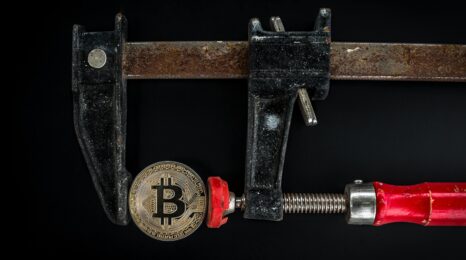
Cars running on sugar? Brazil’s auto industry bets on biofuel hybrids
- Brazil's carmakers invest R$77 billion in 2024 to develop biofuel hybrid vehicles.
- Flex hybrids reduce CO₂ emissions by 73% with ethanol, offering a practical solution for Brazilians.
- Environmentalists warn ethanol focus could delay adoption of fully battery-powered EVs.
As the global automotive industry pivots towards electric vehicles (EVs) powered by minerals like lithium, nickel, and cobalt, Brazilian manufacturers are exploring an alternative: integrating 21st-century electric technology with ethanol, a biofuel derived from sugarcane.
This approach has led to a surge in investments from multinational carmakers, who are betting on biofuel hybrid cars as a viable stepping stone towards cleaner transportation.
Big investments in hybrid-flex technology
Copy link to sectionMultinational carmakers, including Stellantis, Volkswagen, Mitsubishi, and China’s Great Wall Motor, are investing billions to incorporate electrification into Brazil’s flexible-fuel vehicles.
These so-called “flex hybrids” combine traditional internal combustion engines with electric motors, allowing them to run on both ethanol and petrol.
Brazil’s car industry sees this unique category as a crucial step in reducing carbon dioxide emissions from vehicles.
Toyota do Brasil, a pioneer in this space, launched the world’s first flex-fuel hybrid in 2019 and has since sold 75,000 units.
The company plans to introduce two more models under a R$11 billion ($2.1 billion) investment plan announced in March.
Roberto Braun, Toyota do Brasil’s director of environmental, social, and governance, emphasized that flex hybrids are particularly suited to Brazil, given the country’s prominence in biofuel production.
A flex hybrid vehicle in Brazil fuelled with ethanol has very similar CO₂ emissions to an electric vehicle powered by electricity in Europe.
He added that this technology does not require significant changes in consumer behaviour or infrastructure, making it a practical option for many Brazilians.
Can ethanol cut emissions?
Copy link to sectionEthanol, derived from sugarcane, can lower CO₂ emissions by 73% compared to petrol, according to a 2009 study by Brazil’s state-run agricultural research institute, Embrapa.
Defenders of ethanol argue it is a viable low-carbon option in a country where the high prices of full EVs are prohibitive for most consumers.
This biofuel is available at all filling stations in Brazil, making it an accessible alternative.
Brazil’s vast size and varied terrain also pose challenges for the widespread rollout of EV charging infrastructure.
The car industry is optimistic that flex hybrids can help bridge the gap while the country works on expanding its EV capabilities.
In 2024 alone, carmakers have pledged R$77 billion ($15.4 billion) towards upgrading Brazilian vehicles, sparking hopes for a revival in the sector after a decade of stagnation.
Flex hybrids vs fully battery-powered EVs
Copy link to sectionDespite the benefits, some environmentalists worry that the focus on ethanol could delay Brazil’s adoption of fully battery-powered EVs, which are considered the cleanest vehicles.
Luciana Castilla, an energy transition researcher at the University of São Paulo, cautioned that relying on ethanol might make Brazil a laggard in the global shift towards full electrification.
Brazil is the seventh-largest car market globally but lags behind in EV adoption. In 2023, sales of battery-run vehicles and hybrids nearly doubled to 94,000, yet they represented only 4.3% of all passenger and light commercial vehicle sales.
Critics argue that as long as manufacturers and buyers favor flex vehicles, the industry might struggle to achieve the economies of scale necessary to make full EVs affordable.
Is ethanol tried and tested?
Copy link to sectionBrazil’s relationship with ethanol dates back to the 1970s when the oil crisis led the military government to promote biofuels.
Since the introduction of flex-fuel cars two decades ago, they have dominated the market, accounting for about 90% of passenger vehicle sales.
The mandate that petrol must be blended with 27% ethanol—the highest level globally—ensures that even non-flex vehicles contribute to the biofuel economy.
While Brazil is committed to advancing ethanol-based technologies, carmakers like BYD and Toyota are also developing plug-in flex hybrids, which offer more electric-only driving range.
BYD’s local chair, Alexandre Baldy, mentioned upcoming launches of these models, designed to improve the performance and range of ethanol-powered cars.
The net-zero challenge
Copy link to sectionDespite the enthusiasm for flex hybrids, doubts remain about their long-term environmental impact.
The automotive industry in Brazil hopes that offering a variety of technologies will revitalize the sector, which has seen numerous factory closures in recent years.
The industry has not yet returned to its peak production of nearly 3 million passenger cars in 2013, with only 1.8 million units manufactured last year.
Proponents see potential for exporting flex-fuel vehicles to markets like Paraguay and India, where biofuels could reduce oil imports.
Meanwhile, Brazil is also pushing forward with the production of full battery electric vehicles (BEVs). BYD plans to begin assembling BEVs in Brazil by the end of this year, with full domestic production by mid-2025.
The company, the world’s leading EV maker by volume, is setting up its first car factory outside Asia in Bahia, with an investment budget of R$5.5 billion ($1.1 billion).
Brazil’s dual-path approach to automotive innovation
Copy link to sectionBrazil’s auto industry is navigating a dual-path approach, balancing the development of biofuel hybrids with the growing global demand for full EVs.
This strategy reflects the country’s unique strengths in biofuel production and its challenges in EV infrastructure development.
As Brazil begins large-scale lithium mining, there is potential for domestic battery manufacturing, which could further boost the country’s EV ambitions.
Ricardo Bastos, president of the Brazilian Association of Electric Vehicles, emphasized the need for demand and scale to make EVs affordable.
“Brazil cannot get stuck in combustion technology,” he said.
The world is already demanding electric cars, so we will have to be able to produce them here.
More industry news







